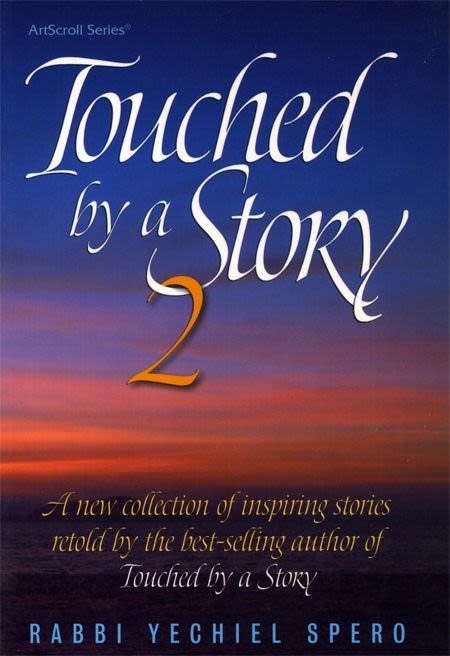
The Delicate Voice
True hearing requires emuna. There is an internal voice weighing options and making subtle suggestions. In order to hear, we must be quiet...

Hear, O Israel: The Lord is our God; the Lord is one. (Devarim 6:4)
Emuna is about listening. The central prayer of the Jewish faith reflects this point by opening with a word imploring us to do exactly that.
Once upon a time, most of our decisions were made before we were even born. Our parents worked on a farm, so we worked on a farm. Our father was a baker, so he taught us his trade. Then we took over his bakery. There were no universities, or they weren’t available to us, so we learned Torah all the days of our life. There were those who had the intelligence and resources to do something else, but they were the exception, not the rule. We usually followed a path already laid out. The biggest decisions were already made.
That was life two hundred years ago.
Today we decide everything. We decide where we will live. We decide what we will do. We decide what we  will learn, and how much time and energy we will put into it. We even decide our environment. If it is cold, we turn on the heater. If it is hot, we put on the air conditioner. We are educated a hundred times a day that we are masters of our own fate. Today’s world makes it very challenging to develop emuna in Someone beyond us guiding our life.
will learn, and how much time and energy we will put into it. We even decide our environment. If it is cold, we turn on the heater. If it is hot, we put on the air conditioner. We are educated a hundred times a day that we are masters of our own fate. Today’s world makes it very challenging to develop emuna in Someone beyond us guiding our life.
How do we reconcile the eternal principle with the modern world? Hashem gives us guidance: Hear, O Israel. What does it mean to hear? We hear the birds. We hear the cars. We hear the morning news. Why does the fundamental statement of Jewish Faith begin with the word Hear?
To hear requires emuna. Even inside our minds there is noise. There is a delicate internal voice weighing options and making subtle suggestions. In order to listen, we have to be quiet. We have to become silent not only with our lips, but with the words spoken inside us. Otherwise we won’t hear that delicate voice.
In order to hear we have to be humble. We have to nullify ourselves to G-d. We have to come to the conclusion that we do not run the world. We do not even run our own lives. It is up to us to surrender our instincts. It is up to us to listen to Hashem. It is up to us to decide not to do what we want, but to subordinate our will to what He wants of us.
To hear, we have to overcome a world demanding that we call the shots. Faith begins when we internalize that this entire world is G-d.
The Lord, our G-d. Every time we look to someone else for help, whether it is livelihood, attention, even love, we are pushing G-d to the background. The long term consequences are severe. If we are distant, in times of trouble, we see ourselves as helpless victims of a random world. We instinctively assess our problems based on a word without G-d because He is not close to us. Even as we read the principles of emuna, our heart doesn’t recognize what the brain is processing. The Lord, our G-d, means that He is with us at all times. Even during those times where we feel all alone and powerless to change things, He is right here. Life is but a test. It is an opportunity to strengthen our emuna. We never have to worry. Even in the most dire situation we can conduct ourselves with the ease and confidence that everything is all right. Things are exactly the way they are supposed to be, because Hashem is right here at this very moment.
The Lord is One. From the first moment of existence to the very last, from the farthest point on earth to the other end, everything is a part of G-d’s Oneness. Every “independent” aspect of our reality is merely a small component of a Greater Whole. Time itself is on a specific course to a specific destination. The choices of our daily lives are not just our own. They reflect His Oneness. When we make a right choice, we progress on the path G-d decided for us. When we make a choice that is not ideal, Hashem gives us a nudge in one direction or another to get us back on track. Once we do return to the path we were chosen for, we realize that even the detours were a part of the plan. Everything is a part of a universal mission.
What is our role in this mission? It’s not for us to decide. It’s for us to discover.
Shema Yisrael. We listen to G-d.
* * *
Dovber Halevi is the author of Sex, Religion, and the Middle East, a book about personal holiness and happiness. He lives in Israel with his wife and three children.












2/28/2013
Which Yetzer is talking? Thank you for the wonderful article. It'll give me more to concentrate on when I recite the Shema. Your article also reminded me of something I heard Rabbi Brody say on a CD recently which has been so helpful, may Hashem help me paraphrase R' brody properly : Want to know the difference between whether the Yetzer Tov or the Yetzer Ra is speaking in your ear? The Yetzer Tov just speaks up quietly once or so, the Yetzer Ra nags and nags and nags.
2/28/2013
Thank you for the wonderful article. It'll give me more to concentrate on when I recite the Shema. Your article also reminded me of something I heard Rabbi Brody say on a CD recently which has been so helpful, may Hashem help me paraphrase R' brody properly : Want to know the difference between whether the Yetzer Tov or the Yetzer Ra is speaking in your ear? The Yetzer Tov just speaks up quietly once or so, the Yetzer Ra nags and nags and nags.